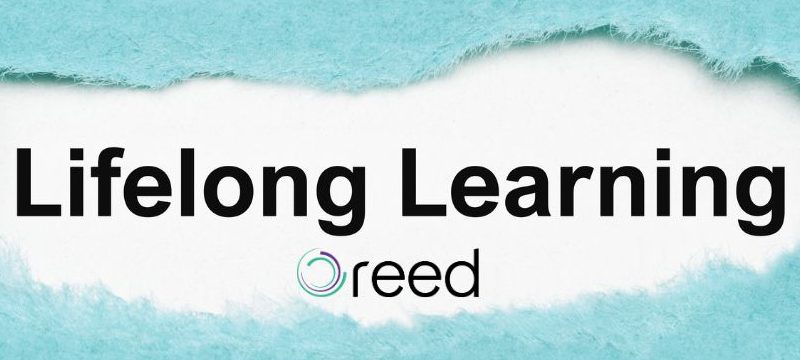Aptitude and attitude play crucial roles in the context of lifelong learning, influencing an individual's ability to acquire new skills and knowledge throughout their life. Aptitude refers to inherent capabilities and natural talents that affect how quickly and effectively someone can grasp and apply new information.
Individuals with strong aptitudes in certain areas may find it easier to excel in related subjects or activities, enhancing their lifelong learning journey by building on their existing strengths.
On the other hand, attitude encompasses the mindset, approach, and willingness to engage in the learning process. A positive attitude towards learning fosters curiosity, resilience, and a proactive approach to acquiring knowledge.
Lifelong learners with a positive attitude are more likely to embrace challenges, view failures as opportunities for growth, and persist in the face of difficulties. This optimistic mindset is crucial for navigating the continuous learning landscape, as it helps individuals overcome obstacles and adapt to evolving educational environments.
The synergy between aptitude and attitude is particularly powerful in the context of lifelong learning. While aptitude provides a foundation for acquiring specific skills, a positive attitude is the driving force that propels individuals to continually seek new information and experiences.
Lifelong learners who leverage their natural aptitudes while maintaining an open and optimistic attitude are better equipped to face the diverse challenges that come with continuous learning.
Moreover, individuals with a growth mindset, a specific aspect of attitude, tend to believe that their abilities can be developed through dedication and hard work. This perspective fosters a sense of agency and a commitment to lifelong learning, as individuals understand that improvement is achievable over time.
In essence, a harmonious blend of aptitude and attitude creates a dynamic learning environment that supports ongoing personal and professional development.
How to have a positive attitude to lifelong learning?
Cultivating a positive attitude toward lifelong learning is essential for sustained personal and professional development.
Here are several strategies to foster a positive mindset and embrace the journey of continuous learning:
1. Embrace a Growth Mindset
Adopt a mindset that views challenges and failures as opportunities for growth. A growth mindset acknowledges that abilities can be developed through dedication and effort. Embrace the belief that learning is a lifelong process, and improvement is always possible.
2. Set Realistic Goals
Establish clear and achievable learning goals. Break down larger objectives into smaller, manageable tasks. Celebrate small victories along the way, and use them as motivation to propel yourself forward.
3. Stay Curious and Open-Minded
Cultivate a curious and open-minded approach to new ideas, experiences, and perspectives. Be willing to explore topics outside your comfort zone. Curiosity fuels a passion for learning and helps maintain a positive attitude.
4. Emphasize the Process, Not Just the Outcome
Focus on the learning process itself rather than solely on the end results. Enjoy the journey of acquiring knowledge and skills, and appreciate the incremental progress you make over time.
5. Adaptability and Resilience
Develop resilience by accepting that setbacks and challenges are a natural part of the learning process. Learn from failures, adapt your approach, and maintain a positive outlook even in the face of difficulties.
6. Seek Feedback and Constructive Criticism
View feedback as an opportunity for improvement rather than as a critique. Embrace constructive criticism as valuable input that can guide your learning journey. Use feedback to refine your skills and understanding.
7. Create a Supportive Environment
Surround yourself with a community of learners, mentors, and supportive individuals who share your enthusiasm for continuous learning. Collaborate, share insights, and draw inspiration from others.
8. Stay Organized and Manage Time Effectively
Develop good organizational habits and time management skills. A well-structured approach to learning can help reduce stress and increase your overall satisfaction with the learning process.
9. Celebrate Milestones
Acknowledge and celebrate your achievements, whether big or small. Take the time to reflect on your progress and recognize the effort you've invested in your learning journey.
10. Incorporate Variety in Learning Methods
Keep your learning experience diverse and engaging by incorporating various methods such as reading, online courses, hands-on projects, and discussions. Variety can prevent monotony and sustain your interest.
How aptitude impacts lifelong learning?
Aptitude significantly influences an individual's capacity for lifelong learning by shaping their inherent abilities, talents, and predispositions.
Aptitude, often considered as natural talent or inherent capability, plays a pivotal role in how easily and effectively an individual can acquire and master new skills and knowledge throughout their life.
Here's how aptitude impacts lifelong learning:
1. Ease of Skill Acquisition
Individuals with a high aptitude in a particular area tend to grasp related skills and concepts more effortlessly. This inherent proficiency can expedite the learning process, making it easier for individuals to acquire and excel in specific domains.
2. Initial Learning Advantage
Aptitude provides an initial advantage in certain fields. For instance, someone with a natural aptitude for mathematics may find it easier to excel in mathematics-related subjects. This advantage can serve as a foundation for lifelong learning, encouraging individuals to build on their existing strengths.
3. Quick Adaptation to New Concepts
Individuals with a strong aptitude in a particular field often demonstrate a quicker ability to understand and adapt to new and complex concepts within that domain. This adaptability is crucial for staying relevant in an ever-evolving learning landscape.
4. Enhanced Problem-Solving Skills
Aptitude contributes to improved problem-solving skills within specific areas. Lifelong learners with a predisposition for logical thinking, analytical reasoning, or creative problem-solving may find it easier to tackle challenges and complexities in their chosen fields.
5. Increased Confidence
Having a natural aptitude in a certain domain can boost an individual's confidence in their ability to learn and perform well. This confidence becomes a driving force for continued engagement in lifelong learning activities.
6. Specialization and Expertise
Aptitude often guides individuals toward areas where they can specialize and become experts. Lifelong learners who recognize and capitalize on their aptitudes are more likely to carve out successful and fulfilling career paths based on their unique strengths.
7. Sustained Motivation
Success and competence resulting from aptitude can contribute to sustained motivation for learning. Positive reinforcement through early achievements fosters a sense of accomplishment, encouraging individuals to maintain an active and enthusiastic approach to lifelong learning.
8. Efficient Time Management
Aptitude can lead to more efficient time management, as individuals with natural talents may require less time to grasp and apply new information. This efficiency allows for a more focused and purposeful approach to lifelong learning.





